Croatia Digital Nomad Visa - 2025 Update
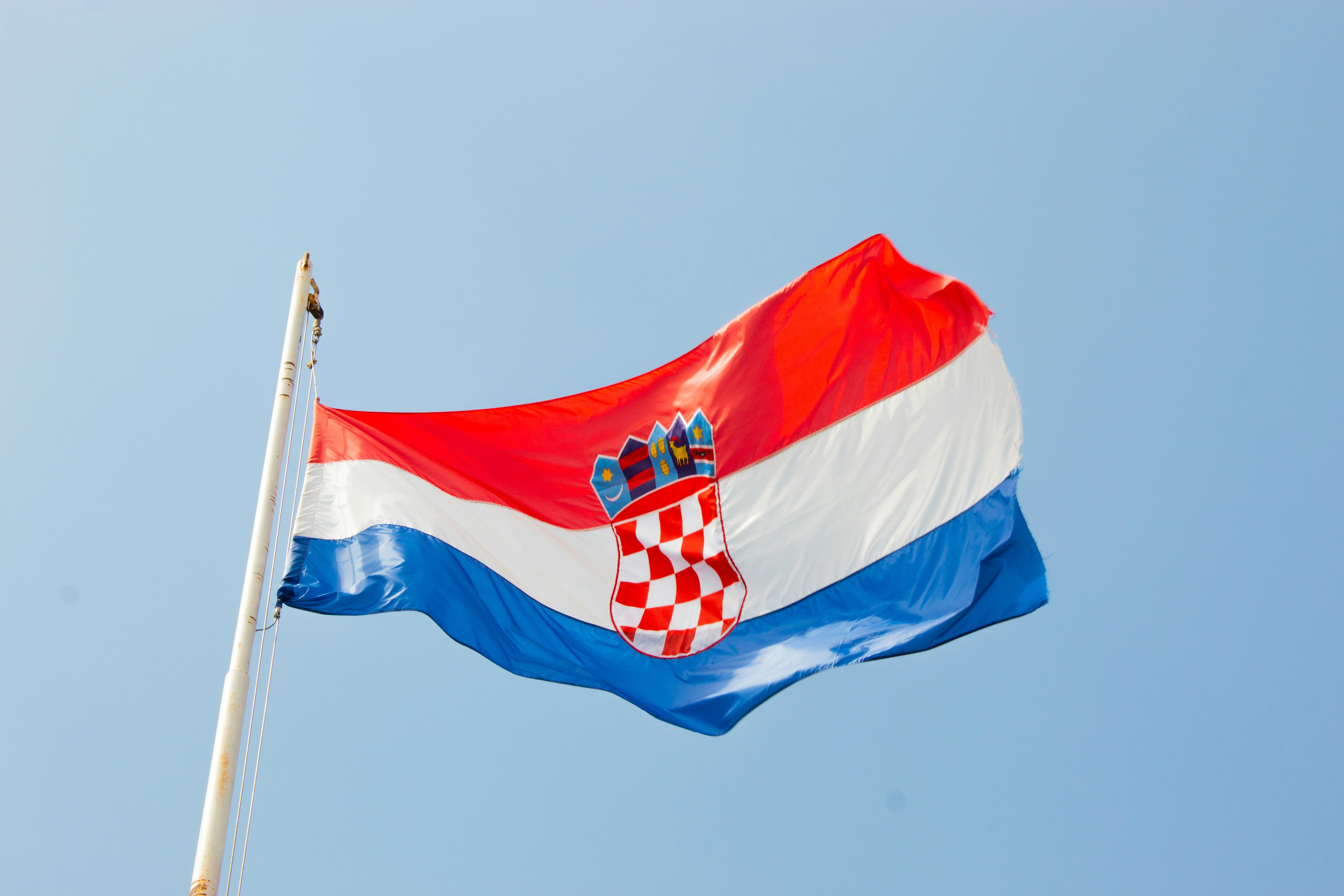
Quick Visa Facts
Visa length Up to 18 months.
Possible to extend? Yes, you can reapply for an additional 18 months, after a 6-month period.
Who can apply? Non-EU/EEA/Swiss citizens who work remotely for foreign employers, freelancers, or self-employed individuals with foreign income.
Minimum Income Requirements At least €3,295 per month (~$3,750 USD) or equivalent savings to cover the stay.
Time for visa applications Processing typically takes several weeks to a few months, depending on where and how you apply.
Want to know if you can apply?
Complete a visa quiz and see if you qualify!
Dreaming of working remotely with the Adriatic Sea as your backdrop? Croatia has quickly become one of Europe’s most attractive destinations for digital nomads, thanks to its dedicated Digital Nomad Visa program. This residence permit allows remote workers, freelancers, and entrepreneurs from outside the EU/EEA to legally live in Croatia for up to one year, without local income tax obligations.
Whether you’re drawn to the historic streets of Dubrovnik, the vibrant cafés of Zagreb, or the relaxed island lifestyle of Hvar, the Croatia Digital Nomad Visa opens the door to experiencing it all while keeping your career fully online. In this guide, we’ll break down everything you need to know: eligibility, requirements, application steps, costs, and insider tips for making the most of your time in Croatia.
Croatia Digital Nomad Visa Overview
The Croatia Digital Nomad Visa is a type of temporary residence permit first introduced in January 2021 to attract remote workers, freelancers, and entrepreneurs. It was designed specifically for people who earn income from abroad and wish to live in Croatia while working online.
Originally valid for up to 12 months, the permit has now been extended to 18 months as of 2025, offering digital nomads even more flexibility. You can also renew it for an additional 18 months, after 6 months outside the country. This makes Croatia one of the most generous digital nomad programs in Europe in terms of length of stay.
Unlike a traditional work visa, this program does not allow you to take a job with a Croatian employer. Instead, it enables you to legally live in the country while maintaining your remote career elsewhere, with the added benefit of being exempt from paying Croatian income tax on your foreign earnings.
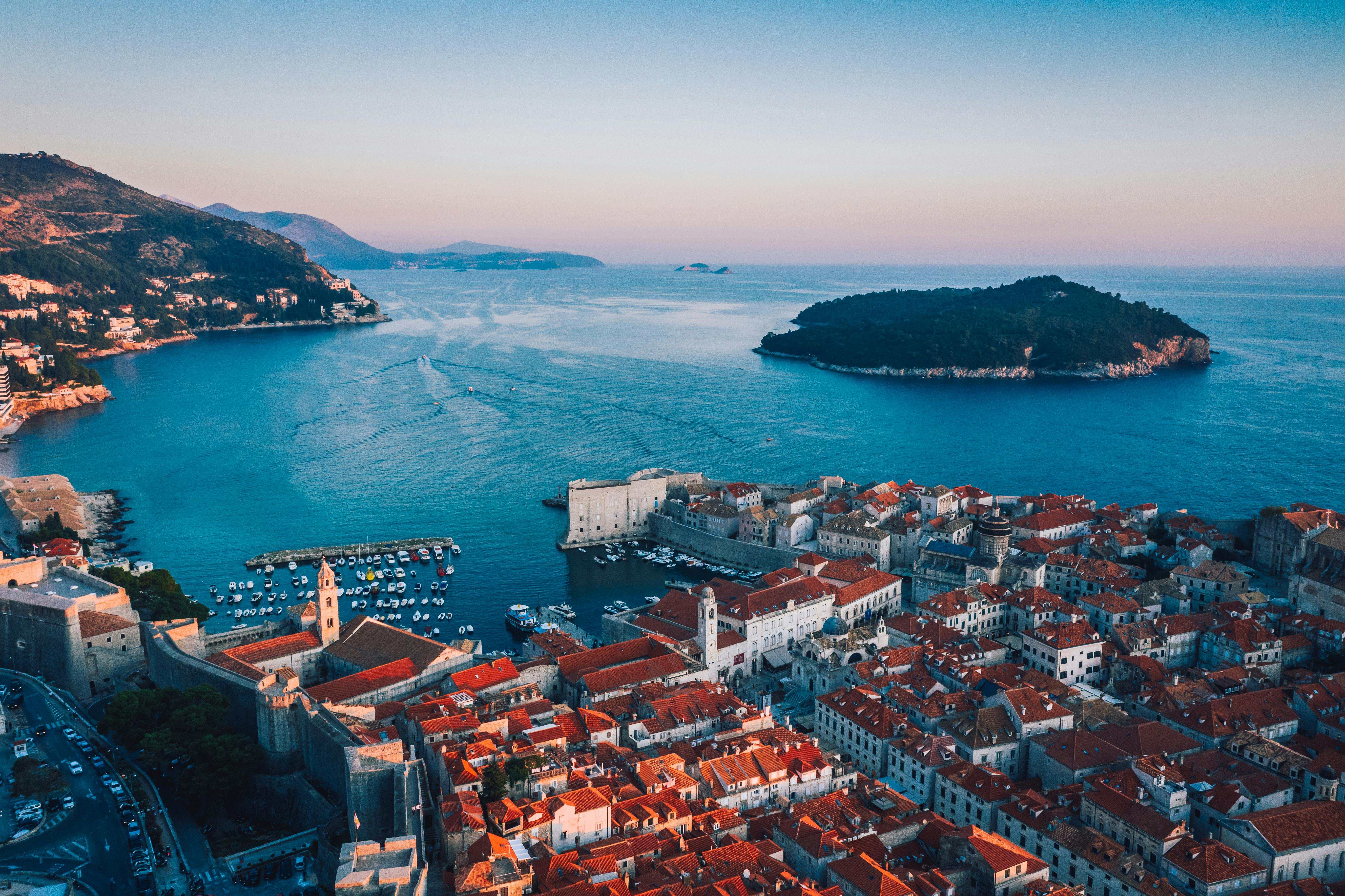
Who Is It For?
Citizens of countries outside the EU/EEA and Switzerland.
Remote employees who work for companies based abroad.
Freelancers and self-employed individuals with international clients.
Applicants who can prove sufficient monthly income or savings to support their stay.
Families of digital nomads, since spouses, children, and even long-term partners can apply for residence based on the main applicant’s permit.
What Does It Allow You to Do?
Live in Croatia for up to 18 months under a temporary residence permit.
Work remotely for non-Croatian companies or clients.
Bring close family members (spouse, children, or unmarried partner) under family reunification rules.
Avoid Croatian income tax on income earned abroad during your stay.
Enjoy local rights such as renting property, opening bank accounts, and accessing services, making everyday life smooth and straightforward.
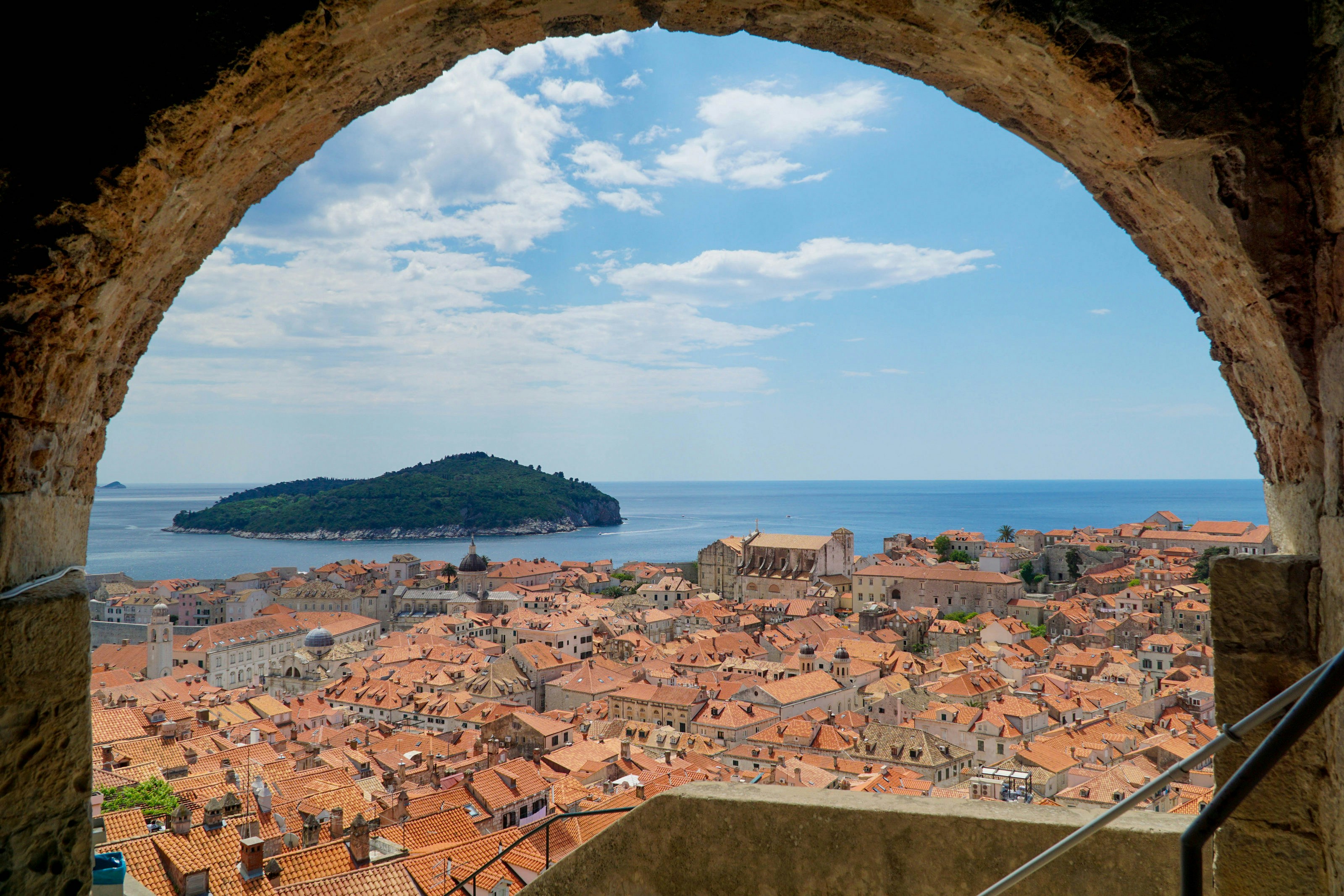
Croatia Digital Nomad Visa Requirements
To apply for the Croatia Digital Nomad Visa, applicants must prepare a set of standard documents along with a few special requirements specific to this permit.
Basic documents needed:
Completed application form for temporary stay.
Valid passport (must be valid at least three months beyond the end of your stay)
Two passport-size photos.
Proof of accommodation in Croatia (rental contract, property deed, or confirmation from a host)
Criminal background check from your country of residence, not older than six months.
Proof of purpose (work contract, client agreements, or business ownership documents showing you work for non-Croatian employers)
Government fee payment confirmation.
Proof of Financial Self-Sufficiency
You must demonstrate that you're able to support yourself (and any dependents) during your stay. There are two acceptable options:
Monthly income: At least €3,295 per month (~$3,750 USD)
Savings: For an 18-month stay, at least €59,310 (~$67,500 USD) in your bank account
If you plan a 12-month stay, the equivalent savings threshold is €39,540 (~$45,000 USD)
Private Health Insurance
You must have valid private health insurance covering medical services in Croatia for the entire duration of your stay. Travel insurance is not accepted; it must be long-term residency health insurance. You can find our recommendations for the best health insurance plans for digital nomads here.
Accommodation Confirmation
Proof of where you’ll be staying in Croatia must be provided. Acceptable documentation includes:
A signed rental agreement
Proof of property ownership
A hotel or temporary booking (for initial stages)
This document is also used to determine the regional police authority that processes your application.
Criminal Background Check
A certificate of good conduct (criminal record check) is mandatory, from your country of residence or from any country where you've lived for at least one year in the past five years. The document must be apostilled or legalized and must be less than six months old.
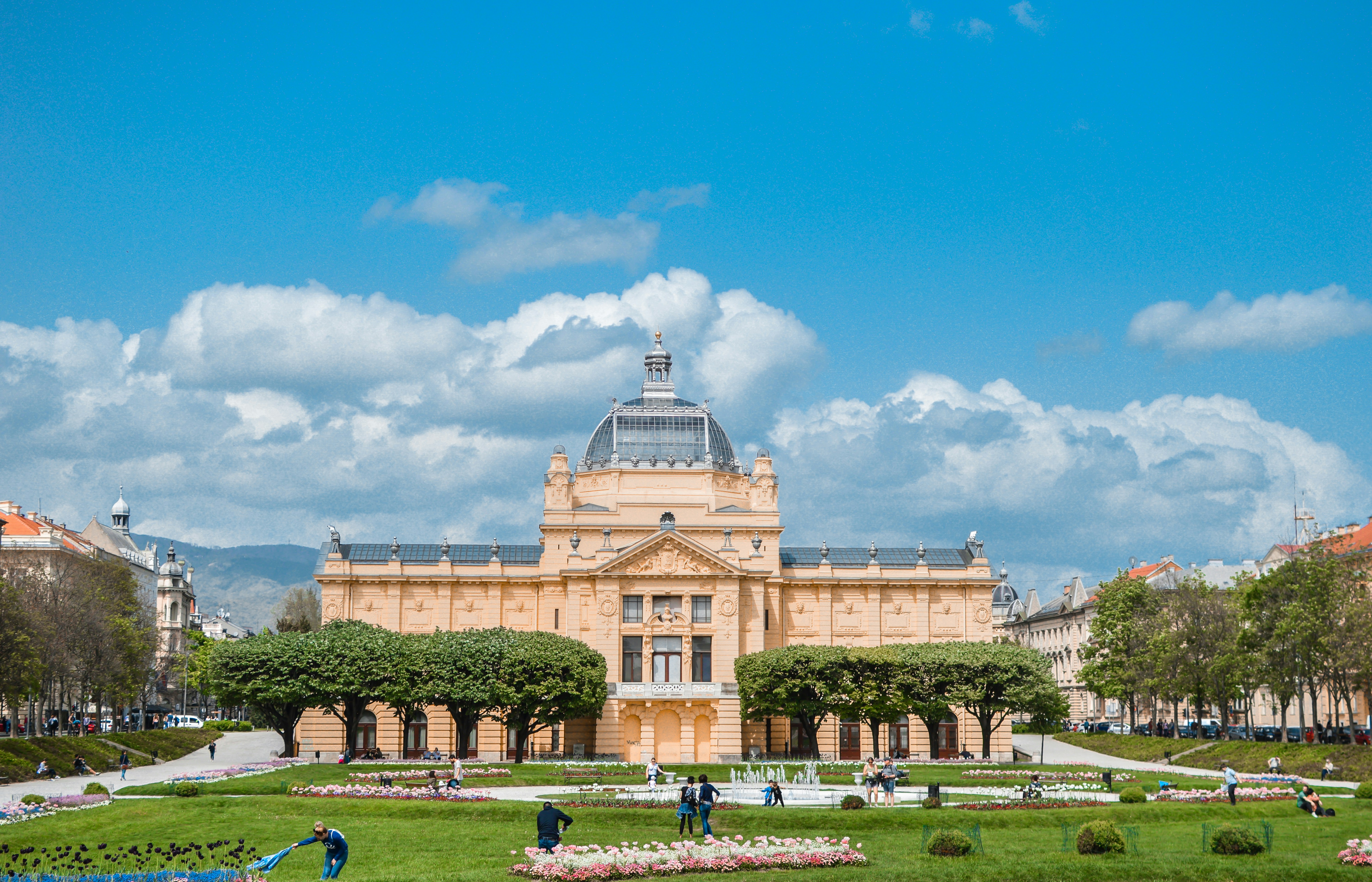
How to Apply for the Croatia Digital Nomad Visa – Step-by-Step Instructions
Applying for the Croatia Digital Nomad Visa involves several stages. The process can be completed either online or in person at a Croatian embassy/consulate abroad or at a local police station if you are already in Croatia.
Step 1 – Gather Your Documentation
The first step in applying is to ensure that all necessary documentation is complete and up to date. This includes personal identification, proof of work, financial self-sufficiency, and health insurance. Preparing these documents ahead of time not only saves time but also prevents potential delays caused by missing or incorrect paperwork. Make sure you review the official requirements carefully and organize everything in a clear and accessible way to streamline the submission process.
Step 2 – Submit Your Application
Once your documentation is ready, you can submit your application. There are three main ways to apply: online through the official Ministry of the Interior portal, at a Croatian embassy or consulate in your home country, or at a local police station if you are already in Croatia legally. Each option has its own procedures and requirements, so it’s important to choose the method that fits your situation. Submitting your application accurately and on time will help avoid unnecessary delays and increase the likelihood of approval.
Step 3 – Pay the Application Fees
After submitting your application, the next step is to pay the applicable government fees. The amount depends on your method of application and can vary slightly by location. Make sure to keep the payment confirmation or receipt, as this serves as proof that your application has been processed. Missing or delayed payment can result in delays or rejection, so it’s essential to handle this step carefully.
Step 4 – Wait for Processing
Once submitted, your application will be reviewed by the Croatian authorities. Processing times can vary depending on whether you apply from abroad or within Croatia, but it typically takes several weeks to a few months. During this time, the authorities may request additional information or clarification about your application. Staying responsive and providing any requested documentation quickly will help ensure the process moves forward without unnecessary delays.
Step 5 – Receive Your Approval
If your application meets all the requirements, you will receive official confirmation of your temporary residence permit under the digital nomad visa program. This approval allows you to legally live in Croatia for up to 18 months while working remotely. Receiving the approval is a crucial milestone, as it enables you to make long-term plans for housing, banking, and daily life in Croatia.
Step 6 – Register Your Address in Croatia
Once you arrive in Croatia, you must register your local address at the nearest police station within three days. This registration is mandatory and ensures that your residence permit is fully recognized. The process is generally straightforward but may require an appointment, so it’s a good idea to schedule this early. Registering your address also allows you to access essential services such as healthcare, banking, and telecommunications.
Step 7 – Collect Your Biometric Residence Card
The final step is obtaining your biometric residence card, which serves as official proof of your status as a digital nomad in Croatia. This card includes your photo, personal information, and the validity of your permit. Once you have your card, you can open bank accounts, sign rental agreements, and access other services just like a local resident. Holding this card also simplifies travel within the Schengen area and provides peace of mind that your stay in Croatia is fully legal and secure.
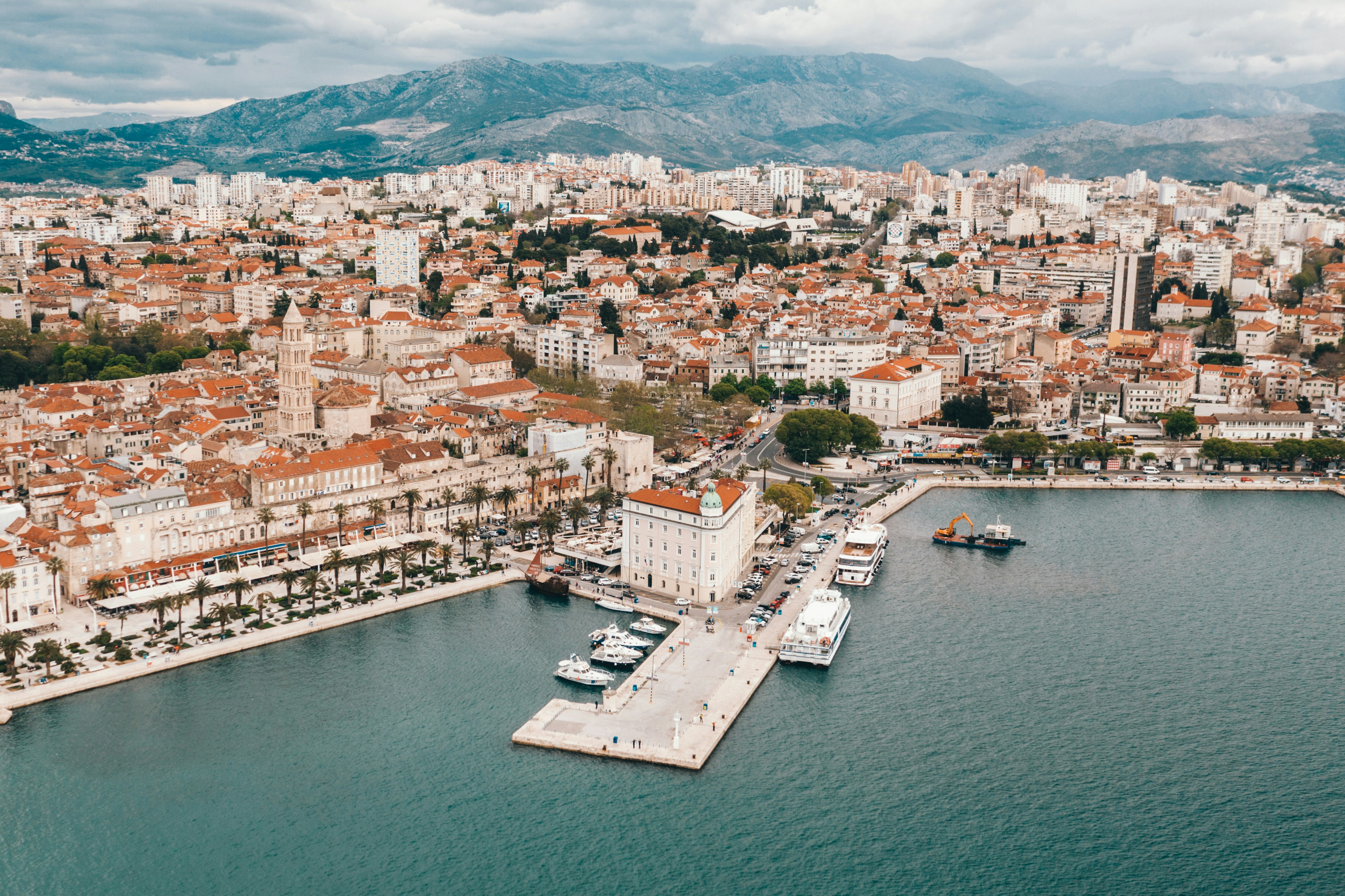
Croatia Stay Requirements With the Digital Nomad Visa
Once you have been granted the Croatia Digital Nomad Visa, there are several important rules and expectations to ensure you remain in compliance with local regulations. First, the visa allows you to stay in Croatia for up to 18 months continuously. You must maintain your status as a remote worker earning income from outside Croatia throughout your stay; working for a Croatian employer is not permitted under this visa.
You are also required to reside at the address registered with the local police, and any change of address must be reported promptly, usually within three days. Failure to do so can lead to penalties or even revocation of your permit. While the visa allows you to live in Croatia, you are expected to have sufficient financial means for the duration of your stay, and your private health insurance must remain valid at all times.
Although the visa is primarily for long-term remote work, short trips outside Croatia are permitted, but the overall stay limit cannot exceed 18 months. Family members who accompany you must also comply with the same requirements, including registration and valid health insurance. Adhering to these stay conditions ensures that your experience in Croatia remains legal, smooth, and enjoyable, allowing you to focus on work, travel, and exploring the country.
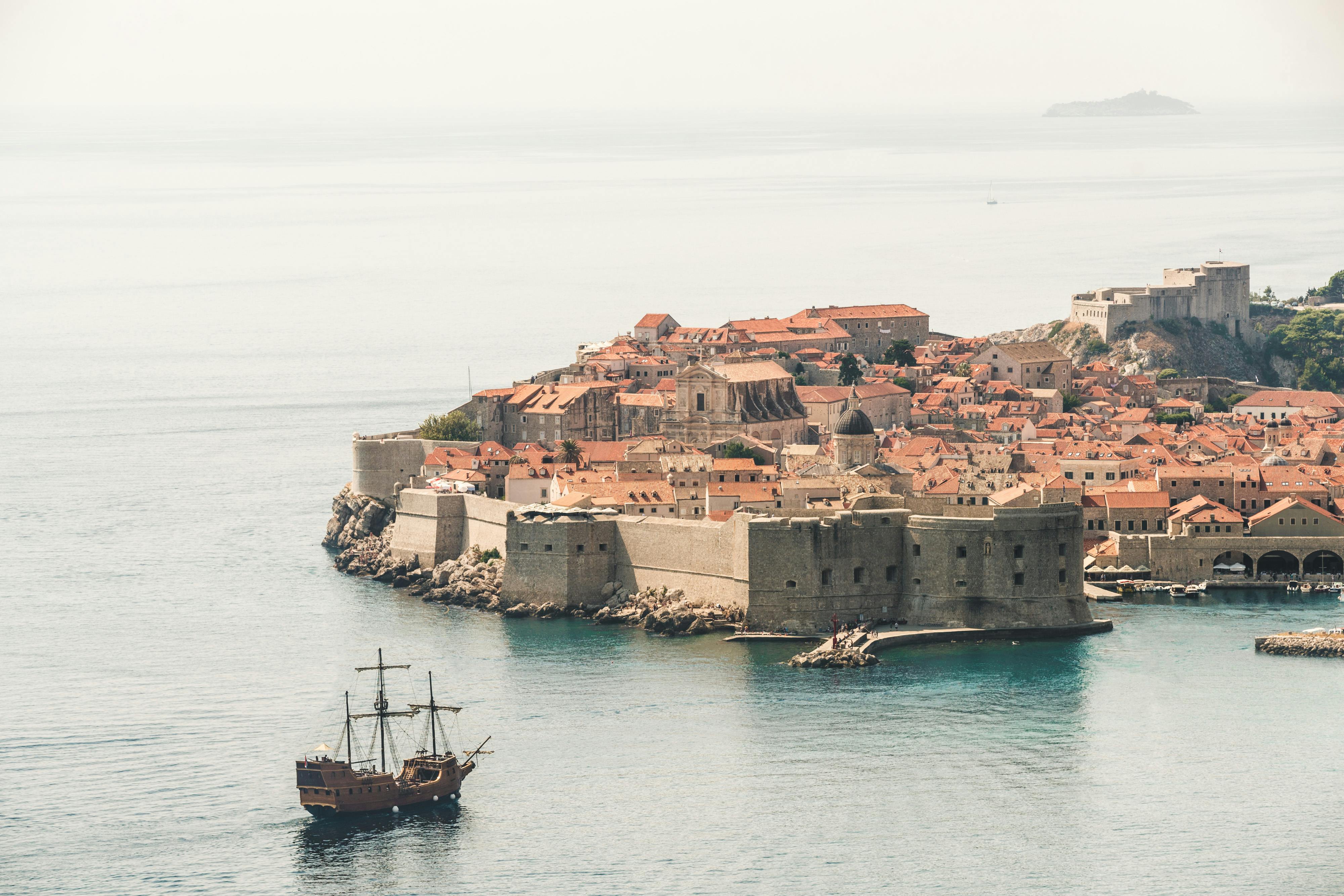
How Much Does the Croatia Digital Nomad Visa Cost?
Applying for the Croatia Digital Nomad Visa involves several costs, which applicants should plan for in advance. The main expense is the visa application fee, which varies slightly depending on the applicant’s nationality and where the application is submitted. Typically, the fee ranges between €100 and €150 for most non-EU citizens.
In addition to the government fee, applicants must also cover the cost of supporting documentation. This includes obtaining a criminal background check, which may require translation and legalization or apostille, as well as any fees for private health insurance that meets Croatian requirements. The total cost for insurance can vary widely depending on the provider and coverage, but it generally ranges from €30 to €100 per month.
Other potential costs include translation of documents, notarization, and any fees associated with proving financial self-sufficiency (such as bank statements or income verification). While these are not fixed government fees, they are necessary for a successful application and should be budgeted accordingly.
In summary, the core cost of obtaining the Croatia Digital Nomad Visa typically falls between €150 and €300, excluding personal expenses and the cost of living in Croatia during your stay. Planning ahead for these fees ensures a smooth application process and helps avoid unexpected delays or complications.

Taxes for People with a Croatia Digital Nomad Visa
One of the most attractive benefits of the Croatia Digital Nomad Visa is its tax-friendly status for foreign remote workers. Individuals holding this visa are generally exempt from paying Croatian income tax on earnings sourced from outside the country. This means that if you are employed by a foreign company, run a freelance business for international clients, or earn income remotely from abroad, you do not need to pay Croatian taxes on that income during your stay.
However, it’s important to note that this exemption does not apply to income generated from Croatian sources. If a digital nomad decides to work for a Croatian company or perform services for Croatian clients, that income may be subject to local taxes under Croatian law.
Additionally, visa holders are required to maintain proper financial records and may be asked to provide proof of foreign income during their stay. This ensures compliance with tax regulations and can help prevent misunderstandings with local authorities.
While the visa itself provides tax benefits, digital nomads should also be aware of tax obligations in their home country. Some countries require residents to report worldwide income even while living abroad, so it’s essential to consult a tax advisor to understand your full obligations.
Finally, holding a digital nomad visa does not exempt you from other routine obligations in Croatia, such as social security contributions, unless specifically exempted. Being informed about these rules allows you to enjoy the benefits of living and working in Croatia without unexpected financial surprises.
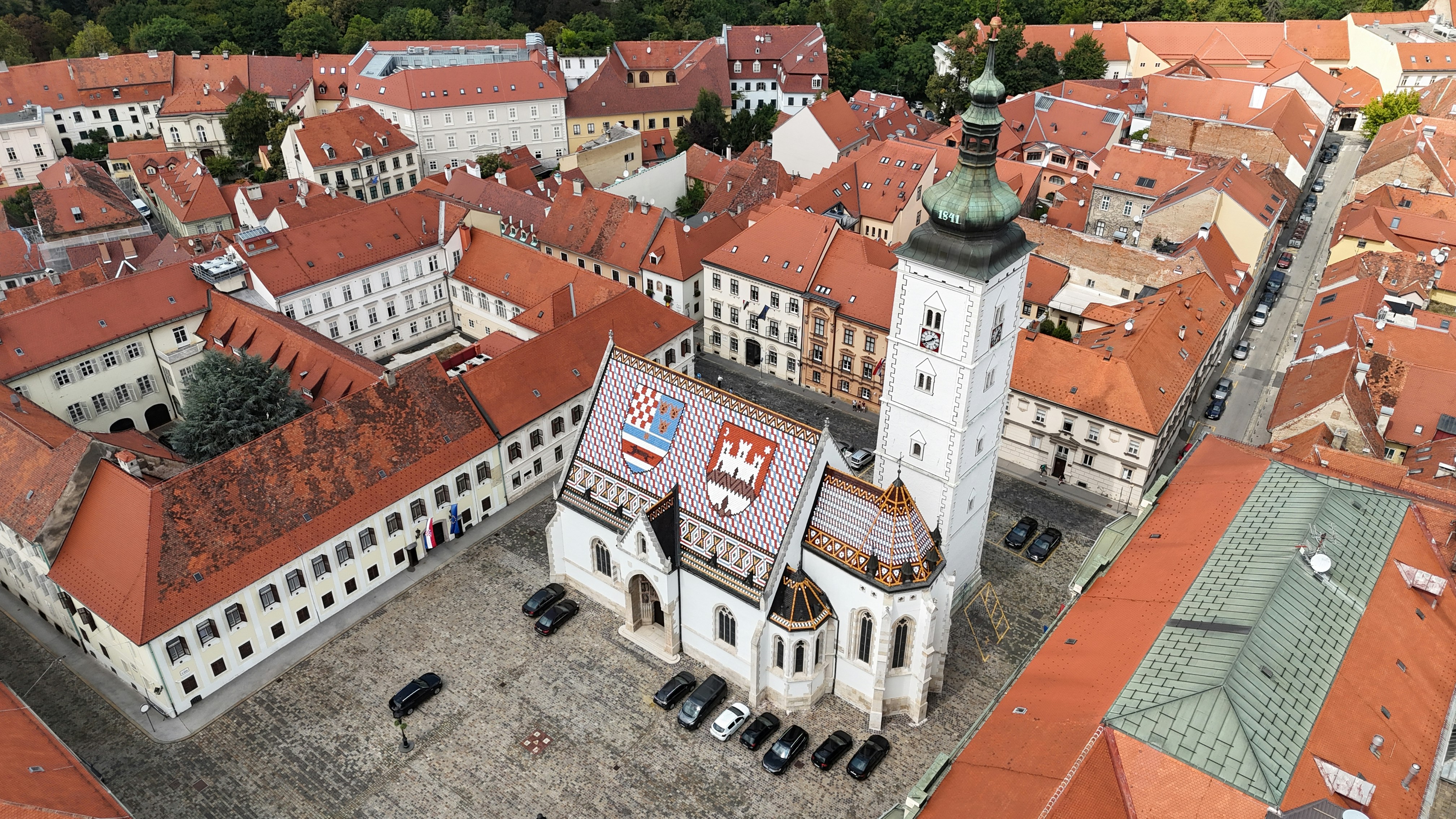
Living in Croatia with the Digital Nomad Visa
Living in Croatia as a digital nomad offers a unique blend of work flexibility and lifestyle benefits. With the digital nomad visa, you can legally reside in the country for up to 18 months while working remotely for a foreign employer or clients. This allows you to fully immerse yourself in Croatian culture without the stress of visa restrictions, while enjoying modern amenities, reliable internet, and coworking spaces in major cities like Zagreb, Split, and Dubrovnik. From the stunning Adriatic coastline to the historic old towns and vibrant café culture, Croatia offers an inspiring backdrop for remote work and creative pursuits.
Beyond the professional advantages, the visa makes it easier to enjoy day-to-day life and integrate into local communities. You can rent apartments, open bank accounts, and access healthcare, all while benefiting from a tax-exempt status on foreign income. For those traveling with family, the visa also allows spouses, children, and certain long-term partners to join you, making it a practical option for longer-term stays. Whether you’re drawn to the lively urban centers, tranquil islands, or scenic countryside, living in Croatia with the digital nomad visa combines professional freedom with the rich experiences of European life.
Best Cities to Live in Croatia
Croatia offers a variety of cities that combine modern amenities, beautiful surroundings, and vibrant cultural life, making them perfect for digital nomads. Here are three of the best cities to consider for your stay:
Zagreb
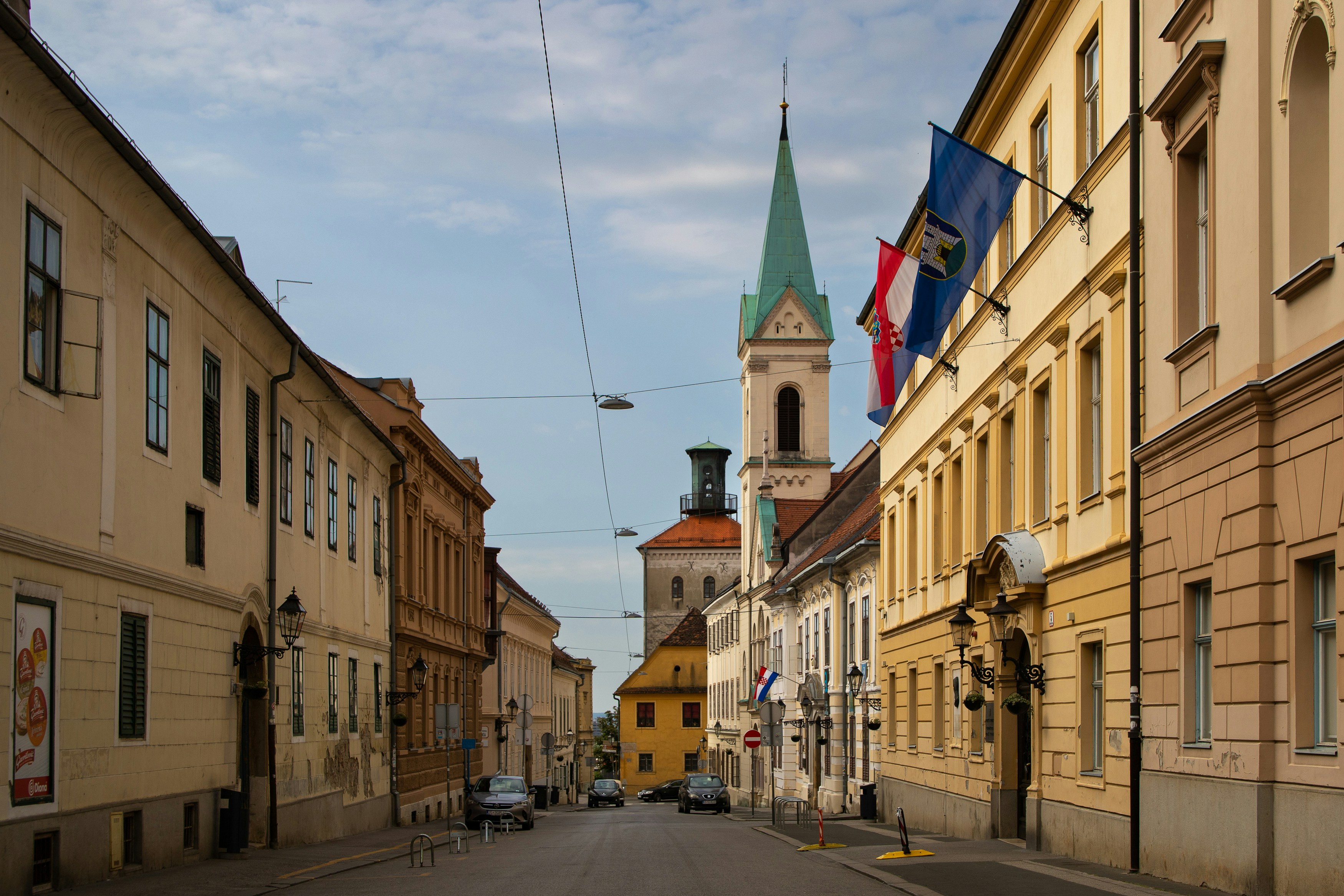
As the capital and largest city, Zagreb blends historic charm with contemporary living. It boasts a lively café culture, numerous coworking spaces, and excellent public transport, making it ideal for remote workers who want both productivity and social life. The city’s art galleries, museums, and weekly markets provide plenty of opportunities to explore after work, while its central location allows easy travel to other parts of Croatia.
Split
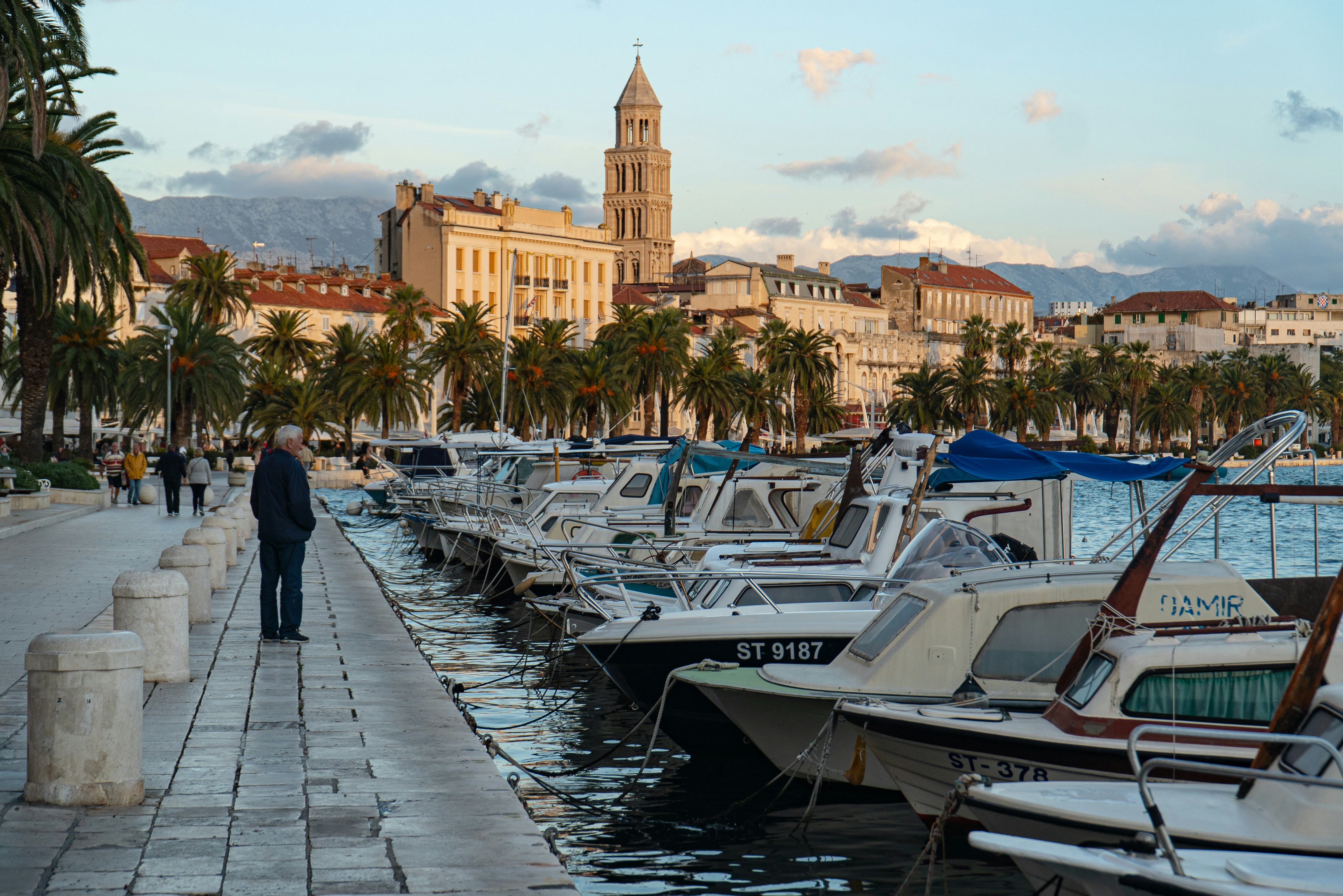
Split is a coastal city known for its stunning waterfront, Roman architecture, and vibrant lifestyle. With a mix of modern apartments and historic streets, it attracts digital nomads who enjoy working near the sea. The city has a growing network of coworking spaces, reliable internet, and numerous cafés and restaurants, all while offering access to nearby islands for weekend getaways. Split perfectly combines professional convenience with the relaxed vibe of Mediterranean life.
Dubrovnik

Dubrovnik, often called the “Pearl of the Adriatic,” is famous for its well-preserved medieval walls, crystal-clear waters, and charming Old Town. It’s a great choice for nomads seeking scenic inspiration and a historic atmosphere. While it is more tourist-focused and slightly more expensive than other cities, the city’s quality of life, networking opportunities among international remote workers, and breathtaking surroundings make it a unique and memorable base for your digital nomad journey.
Cost of Living
The official currency of Croatia is the euro (€). As of September 7, 2025, the exchange rate is approximately €1 = $1.07 USD.
The average net monthly salary in Croatia is around €1,318, which equates to approximately $1,375 USD.
Here’s a rundown of what you should expect to pay in different cities:
Zagreb
Rent (1 bedroom in city center): Approximately €600–€800 per month.
Rent (3 bedrooms outside city center): Around €400–€500 per month.
Basic Utilities: Typically €140 per month
Wi-Fi: Approximately €17 per month for an 8 Mbps connection.
Public Transport: A monthly pass costs about €47.
Groceries (2 people): Between €200–€400 per month.
Split
Rent (1 bedroom in city center): Approximately €600–€1,000 per month.
Rent (3 bedrooms outside city center): Around €400–€600 per month.
Basic Utilities: Typically €100–€150 per month.
Wi-Fi: Approximately €17 per month for an 8 Mbps connection.
Public Transport: A monthly pass costs about €47.
Groceries (2 people): Between €200–€400 per month.
Dubrovnik
Rent (1 bedroom in city center): Approximately €800–€1,200 per month.
Rent (3 bedrooms outside city center): Around €600–€800 per month.
Basic Utilities: Typically €140 per month.
Wi-Fi: Approximately €17 per month for an 8 Mbps connection.
Public Transport: A monthly pass costs about €47.
Groceries (2 people): Between €200–€400 per month.
FAQs
Can I get help applying for the Croatia Digital Nomad Visa?
If you need help applying for a visa, you can talk to Citizen Remote. Get specific advice from one of our experts, or outsource the entire application to our team.
Who is eligible for the Croatia Digital Nomad Visa?
The visa is available to non-EU/EEA/Swiss citizens who work remotely for foreign companies, run their own businesses serving clients outside Croatia, or are freelancers earning income from abroad. Applicants must meet financial and health insurance requirements and cannot work for Croatian employers.
How long can I stay in Croatia on the digital nomad visa?
You The visa allows a stay of up to 18 months. During this time, you can live and work remotely in Croatia, but short trips outside the country are allowed as long as your total stay does not exceed the visa’s validity.
Do I have to pay taxes in Croatia while on this visa?
No, income earned from foreign sources is exempt from Croatian income tax while you hold the visa. However, any income sourced from Croatia is taxable, and you may still have tax obligations in your home country.
Can I bring my family with me?
Yes, close family members such as a spouse, children, and certain long-term partners can apply for residence under family reunification rules. They must also meet health insurance requirements and register their address in Croatia.
Author
Nadia Dardón is a content creator from Guatemala. She has worked fully remotely for the past six years as a copywriter, editor, and content creator, working for different industries. She started her digital nomad journey in 2022 and currently lives as an expat in Spain.
